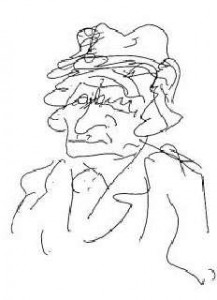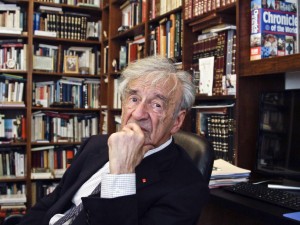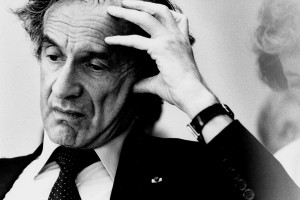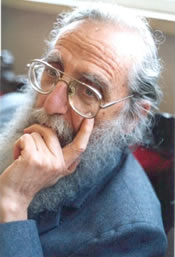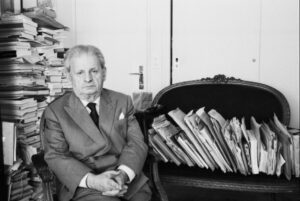Ecoutez Manitou (rav Leon Ashkenazi) parlant de Chouchani :
“Vous avez peut-être entendu parler d’un grand maitre d’après guerre qui était très spécial, c’est Chouchani. J’ai eu le privilège de le connaitre. Il aimait mettre les gens dans sa poche. Il était d’une science faramineuse et d’une mémoire impossible et vraiment une intelligence… hors du commun ! au point que JE ME DEMANDE S’IL ETAIT UN HOMME OU AUTRE CHOSE, c’est pour vous dire…
On ne sait pas d’où il venait. A l’accent il était lithuanien, son accent en hébreu était Litvak, ou alors c’est qu’il a étudié dans une yéshiva Litvak. C’était un prodige. Il est fort probable que dans sa Yeshivah il n’avait personne à qui parler, alors il est devenu fou.
Il y avait des gens qui disaient il est 50% fou et 50% génie – mais c’est faux. Il était 100 % génie et 100% fou ! C’était quelque chose d’exceptionnel. Je l’ai fréquenté pendant un an, admirez ma patience ! Il aimait parfois mettre les gens dans sa poche alors il avait appris que dans une synagogue de la rue Blanche, il y avait Moadon de la communauté séférade turque de la rue Saint-Lazarre. Une fois le comité culturel de la rue Blanche- en plein Pigale – avait invité un prêtre à faire un exposé sur le Cantique des cantiques. A la fin de l’exposé Chouchani se lève et dit : dites-moi la vérité : comment savez-vous ces choses-là puisque vous êtes célibataire ? Toute la salle s’est esclaffée…”
